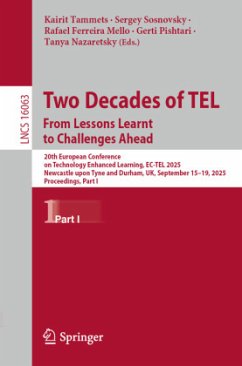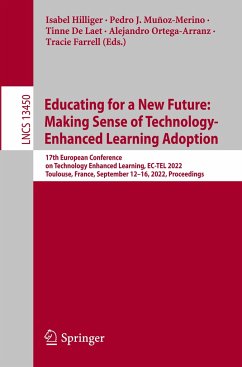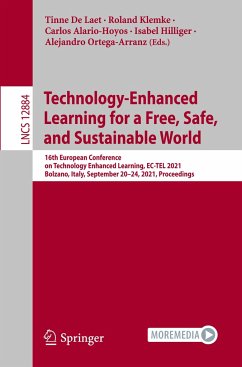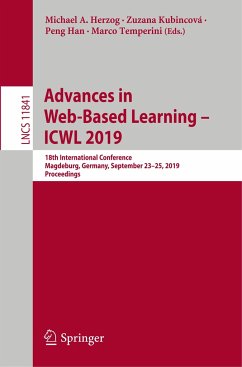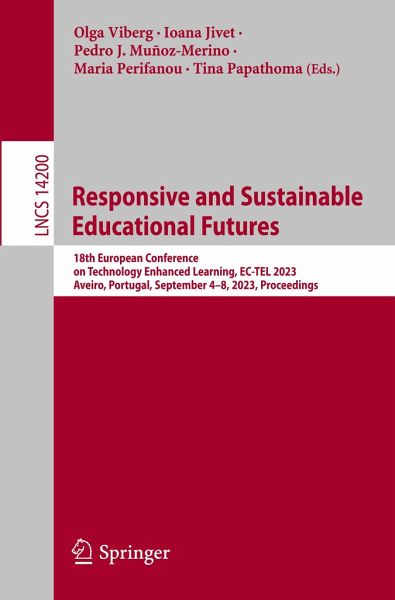
Responsive and Sustainable Educational Futures
18th European Conference on Technology Enhanced Learning, EC-TEL 2023, Aveiro, Portugal, September 4-8, 2023, Proceedings
Herausgegeben: Viberg, Olga; Jivet, Ioana; Muñoz-Merino, Pedro J.; Perifanou, Maria; Papathoma, Tina

PAYBACK Punkte
34 °P sammeln!
This book constitutes the proceedings of the 18th European Conference on Technology Enhanced Learning, EC-TEL 2023, held in Aveiro, Portugal, in September 2023.
The 34 full papers included in this volume were carefully reviewed and selected from 126 submissions. Additionally, 24 posters and 16 demonstration papers were included in the proceedings. The papers focus on sustainable teaching and learning practices in the post-pandemic educational ecosystem.
The 34 full papers included in this volume were carefully reviewed and selected from 126 submissions. Additionally, 24 posters and 16 demonstration papers were included in the proceedings. The papers focus on sustainable teaching and learning practices in the post-pandemic educational ecosystem.



